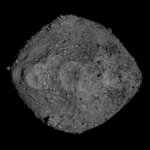Please welcome Maggie Bloom to the 21st Century Tech Blog. Maggie is a graduate of Utah Valley University with a degree in communications and writing. She writes about personal development, mental health, and the therapeutic benefits of reading. In her spare time, she dances, bakes and travels. This is her first contribution to this site and she has chosen an important topic, the use of artificial intelligence (AI) by people in their work and writing.
Schools have continued to wrestle with how AI should be treated since the first ChatGPT generative tool was launched just two years ago. Since then, many more generative AIs have arrived and a race is underway among developers to put out increasingly capable algorithms that learn by absorbing content from large datasets. The Internet is their library and they are quick studies.
In January 2023, just two months after ChatGPT-3.5 was released, I wrote an article entitled, “Can an Artificial Intelligence Write Better Than a Human?” I went back to read this article because of what Maggie has written here.
I must confess that I have been studying different generative AI tools and find myself using them now to help me with writing articles. I ask questions to develop background information. Instead of traditional Google Search, I use Perplexity.ai to identify primary research sources for many topics.
I asked Maggie to look at one of my articles to see if she could detect whether I was using AI or not. She replied that she could tell that I had used AI to enhance what I sent her but noted that the average reader could not. She was right, I had, but she wouldn’t reveal her magic sauce.
Enjoy this, her first contribution to the blog and please send us your observations and comments about how you are using AI or not in your work.
As the presence of AI continues to rise, so does the need to develop guidelines for its usage. Knowing how to spot when and where it is used is vital for many reasons. It helps to keep the facts straight and stops people from being misled by fabricated information. Plus it makes sure computers do not take over human tasks in the workplace.
Keeping Information Genuine and Stopping Misinformation
Detecting AI plays an essential role in keeping information accurate and free from any form of misleading content. When computer systems generate news articles or create media, people can be influenced by altered or made-up information. If, however, one can identify AI-created content, it assists in tracing the origin of the information and helps identify that which is unrealistic. This is particularly important in high-stakes situations such as reporting or during crises where information you receive has to be authentic and accurate. When you can spot AI-authored content it helps protect the integrity of information and saves readers from falling into the trap of accepting misinformation as fact.
Ensuring Fairness Guarding Against Bias
Detecting AI is significant for sustaining equality and guarding against discrimination, specifically in decision processes. When one cannot tell if a result comes from an AI or a human, it becomes tough to examine if decisions are equal or not. This absence of clarity can lead to biased results in employment, credit approval, or even judicial rulings where fairness bears the utmost importance. By being able to identify AI usage it assists in exposing discernible biases that could harm the decision process. That’s why detecting AI ensures equality and a more just and unbiased society.
Maintaining Privacy and Protecting Personal Data
One must make detecting AI a top priority if one desires to safeguard personal information and confidentiality. Advanced AI systems today generate their content from massive amounts of data available to them from the Internet. Currently, AI companies face numerous lawsuits because of copyright violations.
Information used by AI may contain private data that gets leaked even when the information may be a work in progress or fiction. AI improperly trained on data sources can produce hallucinatory results that are made up. The information can include personal data that unwittingly compromises the source. Using AI in a workplace sector such as healthcare and legal services could as a result be very damaging. That’s why emphasizing guarding privacy through putting in place AI detection tools should be a high priority.
Guaranteeing Transparency Understanding AI Decisions
Detecting AI helps bring clarity to how decisions are made. Ask Geoffrey Hinton, who is receiving a Nobel Prize for his work on neural networks, and he will tell you that understanding how this AI decision-making process works can be mystifying. That’s why it is important to distinguish between the use or non-use of AI in generating content. Knowing this is important for legal reasons. Knowing this is important when assessing risk related to instructions that could come from an AI source. Building trust through clarity using AI detection, therefore, helps us develop greater faith in using AI systems in our work.
Upholding Integrity in Content Creation
Detecting AI is essential to protect the authenticity and honesty of produced content. In environments where discerning AI-generated material is critical, an AI detector becomes invaluable for identifying and managing such content. When one cannot discern if content originates from an AI system, there lies a risk of having it churn out fake news, deep fakes, and auto-generated writing.
If you value being able to identify AI-generated content within fields such as journalism, entertainment, or even marketing, an AI detector is a must. Having it in place helps maintain a standard for what gets produced. It safeguards against content malpractice and encourages original thinking while ensuring content is reliable and meets high standards, free from misleading representations. Giving priority to integrity proves fundamental for progressing into a future where one can consistently trust different forms of content without any doubt regarding its source or authenticity.










[…] and data protection: AI systems can add encryption protocols to ensure that sensitive data, such as biometrics remain […]